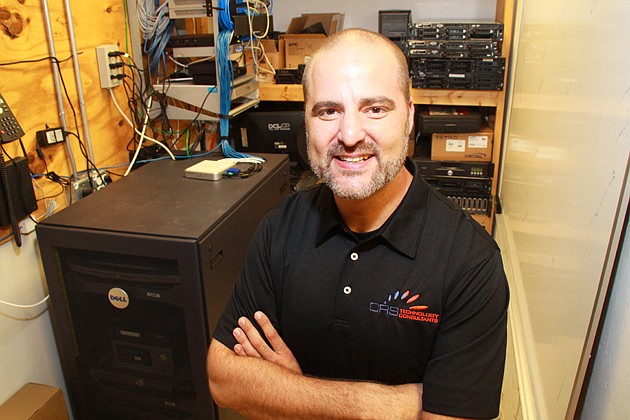- November 25, 2024
-
-
Loading

Loading

Losing customers is one of the biggest risks of buying a business.
But when Jordi Tejero acquired CRS Technology Consultants in Cape Coral a year ago, he didn't lose one of his 400 clients. What's more, he's planning to build the local company into a national firm to help business customers manage technology.
The stories of botched acquisitions are legion, so Tejero's experience is a useful lesson for buyers of well-established existing businesses. The 39-year-old entrepreneur started planning for the transition with the company's previous owner, Carol Conway, in 2007.
Conway had hired Tejero in 2004. “I came in as an engineer, fixing computers,” he says. But he quickly distinguished himself as an articulate salesman in addition to being a skilled engineer.
By 2007, Tejero and Conway had forged an agreement for a business deal. Over time, Conway let Tejero build a 10% stake in phantom stock in her company and agreed that at some undetermined time in the future he could buy the rest of her stake.
Tejero and Conway purposefully told clients and staff that this was the succession plan. “After March 2007, we made it very public,” says Tejero, president of the company. “People started seeing me in a different light. I wasn't just the computer guy.”
It helped that Tejero accompanied Conway on all sales calls. Although he's a self-professed computer geek, Tejero has a warm, outgoing personality. “I love the sales aspect,” he says. “I love the thrill of the win.”
One of the biggest challenges was trying to find a bank to finance the purchase. Because CRS is a service business, banks weren't willing to lend. So Conway agreed to finance Tejero's purchase with a 15-year seller's note.
Although it took five years to make the transition, Tejero says he had several epiphanies along the way. For one thing, he learned to delegate because he'd reached a point where work had taken over his life. “I'd allowed myself to push aside everything in my life,” Tejero says. “Two years ago I realized I couldn't do it anymore.”
Once a week, he takes an unscheduled afternoon off. And he forces himself to go on vacation once a quarter when previously he'd forsaken time off to work. “I'd always let my wife and kids down,” he says.
Although Tejero says he's at work by 6 a.m., he says it's now by choice. Coming in early lets him get office work out of the way so he can focus on meeting clients during the day. And he's paying attention to his eating habits and exercising, losing 75 pounds in the last five months. “On the weekends, I completely unplug,” he says.
Over the time he was being groomed to take over the CRS, Tejero says he learned one of the secrets of managing a growing successful business: “Don't micromanage,” he says. “Let people do what they're good at.”
But don't get the idea that Tejero is relaxing. “The vision is to grow into a national company and do it within five years,” he says.
The firm's 20 employees now perform all their tasks remotely, which means CRS can do business with anyone around the country and even overseas. It charges business customers $150 to $10,000 a month to monitor and fix computer problems. “We've moved it all to the cloud,” he says. “It buys us scalability and disaster recovery.”
Tejero says he may bring on investors, including existing clients who have expressed interest in helping CRS grow. Although he would be giving up some control over the company, he says it's hard to build technology consulting firms from scratch. So he's contemplating acquiring small firms in other areas and growing them.
“I didn't buy the business to keep it the same,” Tejero says.